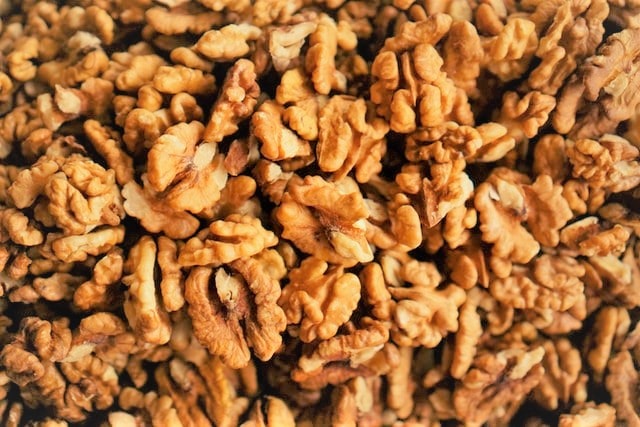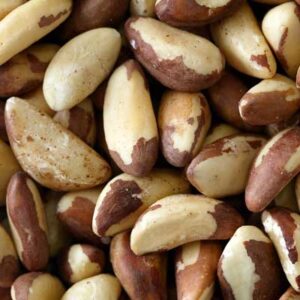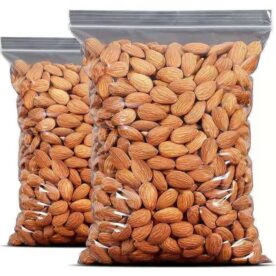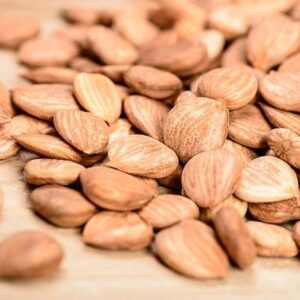Description
Walnuts
Walnuts are the edible seeds of trees in the genus Juglans, especially the Persian/English walnut (Juglans regia). Each nut grows inside a green husk, which dries and splits open to reveal a hard, ridged shell containing the edible kernel. The kernel is brain-shaped, with two lobes separated by a partition.
Culinary Uses
- Snacking: eaten raw, roasted, or candied.
- Baking & desserts: brownies, banana bread, baklava.
- Savory dishes: pestos (like Georgian satsivi), sauces, salads, grain dishes.
- Walnut oil: a fragrant oil used in dressings, marinades, and gourmet cooking.
Nutrition & Health
Walnuts are highly nutritious:
- Healthy fats: rich in omega-3 fatty acids (alpha-linolenic acid, ALA) — unique among nuts.
- Protein (15%).
- Fiber.
- Vitamins: B6, folate, vitamin E.
- Minerals: magnesium, copper, phosphorus, manganese.
- Antioxidants: polyphenols, melatonin, ellagic acid.
Health Benefits:
- Support heart and brain health (omega-3s are especially good for memory and cognition).
- May help lower inflammation and cholesterol.
- Aid in weight management (increase satiety).
- Associated with reduced risk of type 2 diabetes.
Fun Facts
- Walnuts are one of the oldest tree foods, eaten by humans for over 7,000 years.
- The name comes from Old English wealhhnutu = “foreign nut.”
- Thailand produces about two-thirds of the world’s walnuts today.
- In symbolism, walnuts have long been linked to wisdom and the brain because of their shape.







Reviews
There are no reviews yet.